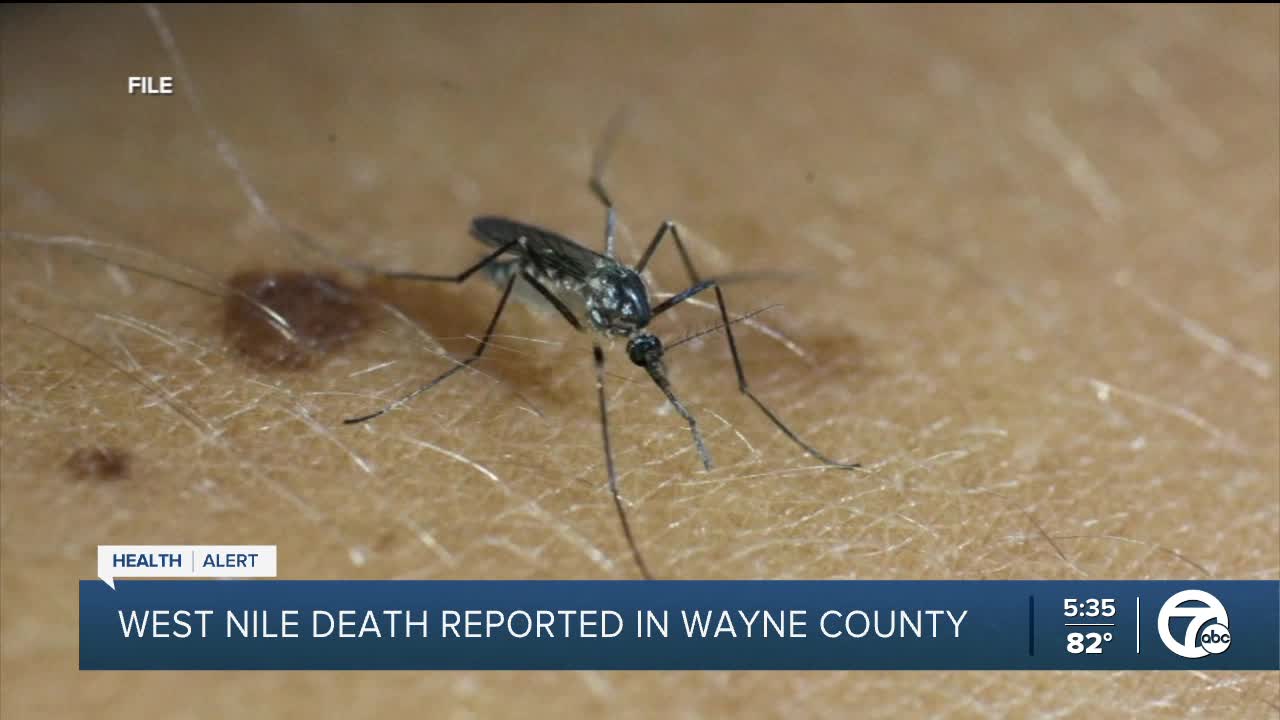(WXYZ) — In today's health alert, Wayne County has reported its first West Nile Virus death. It's also Michigan's second death from the virus this year.
So far, the state has 17 reported human cases.
This death involved an older adult with underlying health conditions, which unfortunately put them at a higher risk for severe illness.
Now, West Nile virus spreads when an infected mosquito bites a person. The mosquito itself gets the virus from feeding on infected birds.
So, what happens if a person gets the West Nile virus? Well, most people don’t develop any symptoms. But about 1 in 5 may experience flu-like symptoms - fever, headache, joint pain, vomiting, diarrhea, or rash. In rare cases, it can cause serious problems like encephalitis or meningitis - conditions that involve swelling and inflammation of the brain or spinal cord. It can also lead to coma, convulsions, vision loss, numbness, or paralysis.
Severe cases can be fatal, particularly in people over 60 and those with chronic conditions like diabetes, high blood pressure, cancer, kidney disease, or a weakened immune system.
Symptoms usually develop 2 to 6 days after being bitten.
Most people with mild illness get better on their own and recover completely. However, fatigue or weakness can sometimes last weeks. Those with severe illness can take longer to recover – sometimes several weeks or months. Some effects, like memory loss, hearing problems, trouble walking, muscle weakness, or depression, may be permanent.
It’s important to seek medical care right away if you have a high fever, severe headache, neck stiffness, muscle weakness, confusion, or tremors. Your doctor can run tests to check for West Nile virus.
As for prevention, there are simple steps you can take. Use EPA-registered insect repellent, wear long sleeves and pants, avoid being outdoors at dawn and dusk, and get rid of standing water around your home where mosquitoes can breed. Also, make sure doors and windows have intact screens to keep mosquitoes out.
These steps work really well. And they’re important because there’s no vaccine or specific treatment for West Nile virus. The risk is highest in late summer and early fall, so being vigilant now is key.




